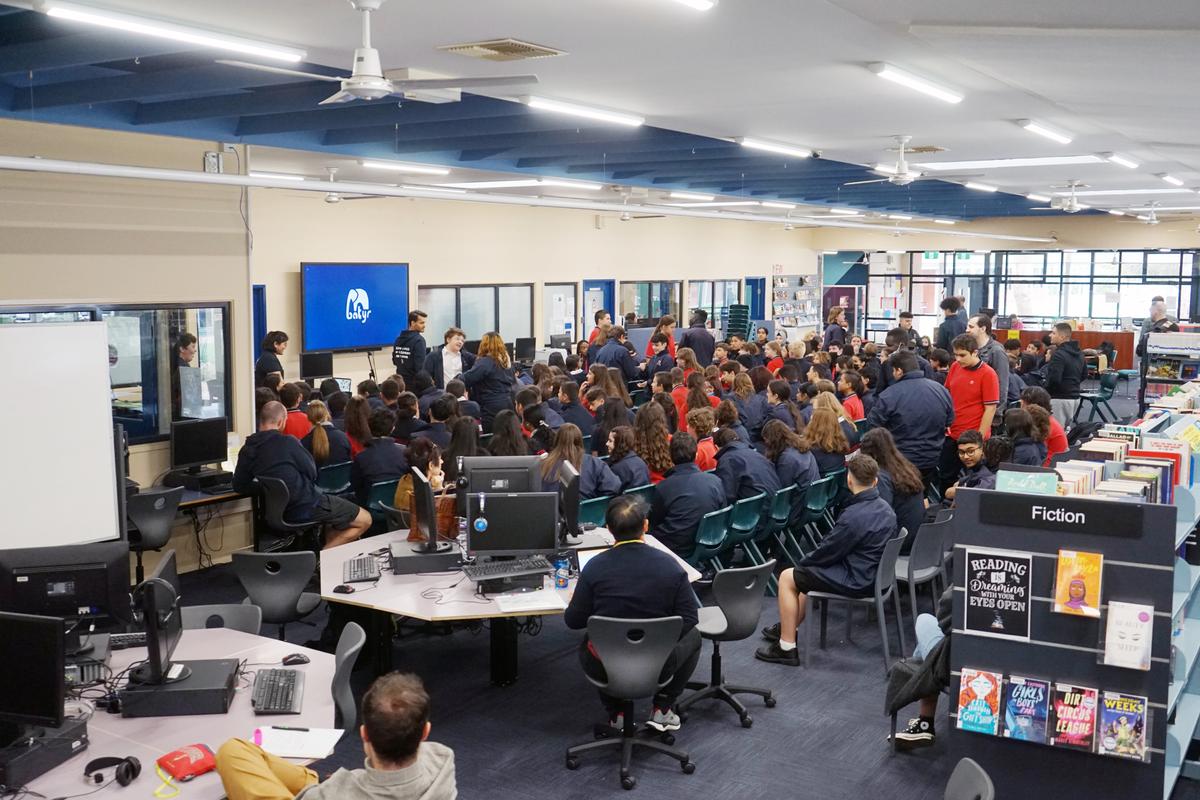Wellbeing News

Grade 9 BATYR Mental Health Presentations
On Thursday 29th April, Grade 9s at Sydenham attended a presentation on mental health with the BATYR organisation.
In this presentation, young, relatable speakers engaged the students with their stories of hope, resilience and courage in their experiences with mental ill-health. Trained facilitators educate students on the support networks and services available to them and empower students to reach out for help when needed.
Review from Isabella Portelli (Grade 9).
The BATYR presentation was very informative about mental health. This
presentation helped me understand what other people go through and what they
could be going through. It also made me aware of where I could seek help if I need it. The presenters also helped me and my peers understand that it is okay to ask for help. It was very inspiring to hear the real life stories of the presenters. Overall, this presentation made me more informed about mental health.variety of community organisations including Brimbank Youth Services, Centre for Multicultural Youth and Youth Support Advocacy Service (YSAS).
Ms Sarah Pearson
Psychologist
MUSIC THERAPY PROGRAM AT COPPERFIELD COLLEGE
We are currently looking for expressions of interest for students who would like to have access to music therapy within the Copperfield school setting. These sessions can be funded through the NDIS if you choose.
Please contact Jade Tauber, Inclusive Practices Officer, on
Jade.Tauber-Myers@education.vic.gov.au if you are interested in participating in music therapy sessions at Copperfield College.
What Is Music Therapy?
Music therapy is a research-based practice and profession in which music is used to actively support people as they strive to improve their health, functioning and wellbeing. Music therapy is the intentional use of music by a university trained professional who is registered with the Australian Music Therapy Association Inc. Registered music therapists draw on an extensive body of research and are bound by a code of ethics that informs their practice. Music therapists incorporate a range of music making methods within and through a therapeutic relationship. They are employed in a variety of sectors including health, community, aged care, disability, early childhood, and private practice. Music therapy is different from music education and entertainment as it focuses on health, functioning and wellbeing. Music therapists are committed to supporting people of any age and ability regardless of musical skill, culture or background.
Possible Goals Used In Music Therapy.
PHYSICAL – developing fine and gross motor skills and control, balance, coordination, movement, help regulate breathing rate and heart rate, improve respiratory muscle strength and control, etc
SOCIAL – leadership, independence, turn-taking, listening, following instructions, choice, increase length of time engaged in activities, identifying what is socially acceptable, developing self-esteem, give positive new ways to deal with situations, etc
EMOTIONAL – self-expression, identifying emotions, discussion of emotions, regulation of moods and energy levels, manage anger and frustration, managing challenging behaviour, choice, have fun and enjoyment of music, learning relaxation techniques and managing anxiety and stress, etc
COGNITIVE – learning concepts such as colours and animals, planning and problem solving, increase memory and attention, etc
COMMUNICATION – increasing the amount and quality of verbalisations and vocalisations, improve physical speech function, increase social communication skills, increase social interaction, etc
What Can We Do In Music Therapy?
- Listening to and playing instruments to live and recorded music
- Choice and control
- Sensory stimulation
- Movement and dance activities
- Sing
- Song writing – Using or writing lyrics and songs
- Music and drama
Meet your music therapist
Jillian Webb is a Registered Music Therapist with the Australian Music Therapy Association (AMTA ). She is bound by the Code of Professional Conduct and Ethics of AMTA. Jillian studied at The University of Melbourne and completed a bachelor of music specialising in music therapy. Jillian has over 14 years of clinical music therapy experience with children and adults with disabilities within both special education and private practice settings. Jillian has also been a supervisor at the University of Melbourne for music therapy students studying their master’s course. She has a private practice which has wide a range of different client populations and needs. Jillian is a NDIS provider of music therapy, and provides music therapy in participant’s homes. She is excited to start a music therapy program within Copperfield College.
Please contact Jillian Webb on 0438 267 436, if you would like to talk about music therapy.
Please contact Jade Tauber, Inclusive Practices Officer, on
Jade.Tauber-Myers@education.vic.gov.au if you are interested in participating in music therapy sessions at Copperfield College.
Ms Jade Tauber-Myers
Inclusive Practices Officer




